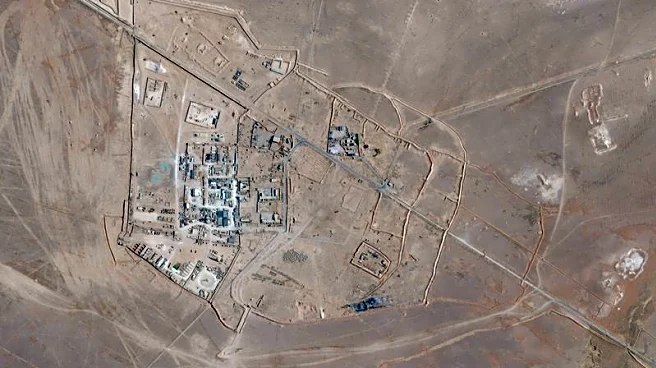What's Happening?
Diplomats from France, Germany, and the United Kingdom met with Iranian representatives in Geneva to discuss the potential reimposition of UN sanctions on Iran due to its nuclear program. The meeting ended without a resolution, as the European countries are considering invoking the snapback mechanism of the 2015 Iran nuclear deal. This mechanism would reinstate wide-ranging UN sanctions, including arms embargoes and restrictions on ballistic missile development, if Iran is found non-compliant. The deadline for invoking this mechanism is the end of August, and the failure to reach an agreement raises concerns about Iran's nuclear activities, which have been enriching uranium to near weapons-grade levels.
Why It's Important?
The inability to reach an agreement on Iran's nuclear program has significant implications for international security and diplomatic relations. The potential reimposition of sanctions could escalate tensions between Iran and Western countries, affecting global geopolitical stability. The situation also impacts the nuclear non-proliferation efforts, as Iran's enrichment activities pose a challenge to the international community's goal of preventing nuclear weapons development. Additionally, the economic sanctions could further strain Iran's economy, affecting its citizens and regional trade dynamics.
What's Next?
Efforts to find a diplomatic solution are expected to continue, with the deadline for invoking the snapback mechanism approaching. The international community, including the US and the International Atomic Energy Agency, will likely increase pressure on Iran to comply with the nuclear deal's conditions. If sanctions are reimposed, Iran may retaliate by further advancing its nuclear program, leading to increased regional tensions. The situation may also prompt discussions among UN Security Council members, including Russia and China, who have historically supported Iran.
Beyond the Headlines
The failure to reach an agreement highlights the complexities of international diplomacy and the challenges of enforcing nuclear non-proliferation agreements. It raises ethical questions about the balance between national sovereignty and global security. The situation also underscores the importance of transparency and cooperation in nuclear activities, as the lack of access for UN inspectors leaves the international community uncertain about Iran's intentions.










